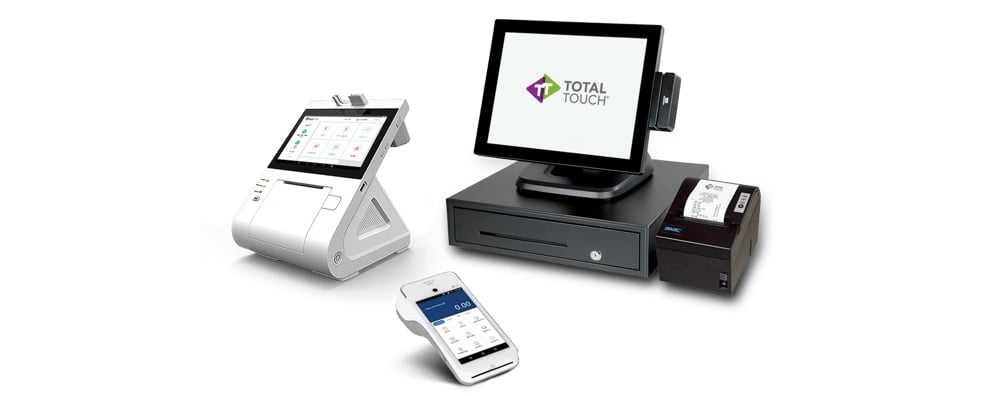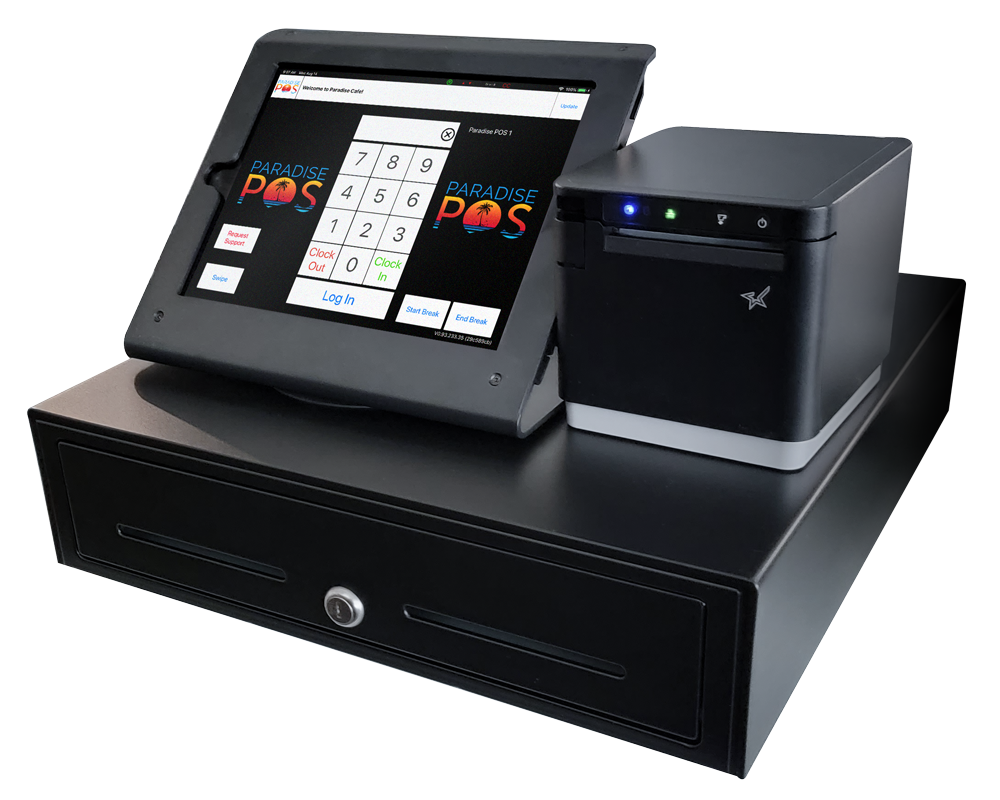Things about Pos Systems

POS Software: Retail Point-Of-Sale Solutions Streamline Deals
The smart Trick of Clover Pos That Nobody is Talking About

Hardware Components of a Point of Sale System What makes a POS system tick? It's not simply software application; the hardware plays a starring role. Consider it as the body to the software application's brain. Without the best hardware, even the most advanced POS software application is simply a pretty face. Necessary POS Hardware So, what are the must-haves? Let's simplify. The main processing unit, typically a computer or tablet, is the heart of the operation. The screen or touchscreen display permits staff to interact with the system. A barcode scanner speeds up the checkout process. Keep in mind the days of manually entering each code? The dependable invoice printer supplies customers with a record of read more their purchase. A money drawer keeps your money safe and organized. A card reader enables consumers to pay with credit or debit cards. Diving Deeper: Beyond the Fundamentals But wait, there's more! Depending on your company, you might need customized hardware. A dining establishment might integrate cooking area printers to relay orders, while a retail store may utilize label printers for item tagging. Ever question how your local bakeshop immediately prints those delicious-looking labels? Choosing the Right Hardware: A Balancing Act Selecting the right hardware isn't practically buying the most costly equipment. It's about discovering the sweet spot in between performance, resilience, and budget plan. A little service just starting might decide for a more fundamental setup, while a high-volume retailer will need robust, high-performance devices. Is it better to buy new or utilized? Consider your choices thoroughly. A new system offers the most recent innovation and guarantee protection, but a refurbished system can save you cash. The Future of POS Hardware What does the future hold? Expect to see a lot more combination with mobile phones, biometric scanners for employee authentication, and advanced analytics dashboards displayed on larger, clearer screens. Imagine a world where inventory is instantly updated in real-time as items are scanned-- a world where you can track your very popular item from anywhere in the world. The possibilities are limitless, and the hardware is continually developing to fulfill the demands these days's companies. Are you prepared to upgrade your point of sale system?
Software Features and Capabilities: The Heart of Your POS System
Ever enjoy a skilled barista move through a busy early morning rush? Their trick isn't just caffeine; it's a smooth dance with their POS system. The software application is the conductor of your business symphony, orchestrating everything from sales to inventory. However what notes should you be listening for? What capabilities truly matter in today's market?
Inventory Management: Beyond Counting Beans
Forget spreadsheets that haunt your dreams. Modern POS systems offer real-time inventory tracking, informing you when your stock of artisanal coffee beans dips precariously low. Think about it as a digital guardian angel, avoiding those uncomfortable "Sorry, we're out!" minutes to clients. What if you could also forecast demand based upon historical data? Numerous systems now offer forecasting tools, an effective weapon versus overstocking and lost sales. This assists avoid the predicament of lacking popular items or building up excess inventory of slow-moving items, both of which can constrain capital and area.
Sales Reporting and Analytics: Decoding the Information
Sales data is the brand-new gold, and your POS system is the miner. Forget feeling in one's bones how much you sold today. Dive deep into the information to uncover trends, determine your best-selling products, and comprehend customer habits. Which menu product sets perfectly with the everyday special? Which promotion resonated most with your clientele? These insights are not simply fascinating; they're actionable intelligence. Without reputable sales reporting, navigating the intricacies of organization decision-making becomes like sailing without a compass, increasing the possibility of bad moves and missed opportunities.
Customer Relationship Management (CRM): Structure Bridges, Not Walls
Remembering a regular client's name and preferred order is charming, however scaling that personal touch is difficult. POS systems with CRM abilities enable you to track client purchase history, preferences, and even birthdays. Imagine automatically offering a discount rate on their birthday-- a little gesture that promotes loyalty and encourages repeat business. There is the possible snag of poor information quality, which can lead to unreliable consumer profiles and inefficient marketing efforts.
Payment Processing: Improving the Deal
The checkout experience can make or break a sale. Seamless integration with various payment approaches-- charge card, mobile wallets, even copyright-- is non-negotiable. Can your system deal with split payments? Does it offer safe and secure tokenization to secure client data? A cumbersome payment procedure is like hitting a sour note in your service symphony, possibly disrupting the entire efficiency. Guaranteeing compatibility with developing payment technologies and adherence to security standards are critical for maintaining customer trust and functional efficiency.
Worker Management: Keeping the Team in Sync
From clocking in and out to managing authorizations and tracking efficiency, staff member management features enhance operations and enhance accountability. Is scheduling a headache? Lots of POS systems offer integrated scheduling tools, optimizing staffing levels based upon predicted need. A common obstacle that is typically overlooked is the challenge of integrating worker management functionalities with payroll systems, which can result in errors and ineffectiveness in wage computations.
Advanced Features: Leveling Up Your Operations
- Table Management: Perfect for restaurants, this function permits you to picture your dining-room, track table status, and handle bookings.
- Loyalty Programs: Reward your finest clients and encourage repeat organization with integrated commitment programs.
- Online Buying Combination: Seamlessly incorporate your POS system with online buying platforms to broaden your reach.
Choosing the right POS system is about more than simply performance; it's about finding a partner that can grow with your business. Consider your existing requirements, expect future development, and do not hesitate to ask the hard concerns. The best software application can change your company from a disorderly cacophony into an unified masterpiece.
Industry-Specific POS System Applications
Think about the regional pastry shop, busy with morning clients yearning fresh croissants. A generic POS system might deal with deals, but can it manage complicated recipes, track component stock, or automatically change production schedules based upon sales data? Most likely not. That is where the appeal of industry-specific POS systems shines.
Dining establishments and Hospitality
For bustling restaurants, speed and accuracy are paramount. The number of times have you seen servers juggling orders, modifications, and splitting bills, all while trying to provide exceptional service? A dining establishment POS system simplifies these processes, permitting table management, kitchen order tickets, and even online purchasing integration. These systems typically consist of features like ingredient-level inventory tracking, important for managing food expenses and lessening waste. Ever wonder why your favorite dish is sometimes unavailable? It might originate from an absence of proper inventory management.
- Table Management
- Kitchen Order Tickets
- Online Buying Integration
- Ingredient-Level Stock Tracking
Retail Solutions
Retail, with its varied stock and consumer interactions, requires a different set of tools. Picture a boutique clothing shop struggling to keep track of sizes, colors, and seasonal collections using a basic checkout system. An industry-specific retail POS system provides functions like barcode scanning, client commitment programs, and comprehensive sales reporting. These systems can even integrate with e-commerce platforms, supplying a seamless omnichannel experience for customers. Did you understand some retail POS systems can forecast future sales trends based upon historic information? Now that is powerful!
The Perils of an Inequality
Selecting the wrong POS system can produce significant functional obstacles. A clothes store using a restaurant POS, for instance, would find it unsuitable for managing inventory with sizes and colors. The absence of proper reporting and analytics could lead to mistaken purchasing decisions and lost income. The outcome might be comparable to attempting to fit a square peg in a round hole.
Key Factors to consider
Choosing an industry-specific POS system requires mindful examination. Think of your company's distinct needs and operational workflows. Does the system incorporate with existing software application? Does it provide the needed reporting capabilities? Is it scalable to accommodate future growth? A well-chosen POS system is not just a transaction tool; it's a tactical possession that can drive effectiveness, improve customer fulfillment, and ultimately, boost your bottom line. Keep in mind, it is an investment in your service's future, not just an expense.
Security Factors To Consider for Point of Sale Systems
Ever heard the tale of the mom-and-pop store that lost everything since of a single, ignored security defect in their POS system!.?. !? It's a cautionary tale, and it highlights a vital element frequently eclipsed by the appeal of expensive features and structured operations. The reality is, a POS system is just as excellent as its security. What good is a system that crunches numbers in a flash if it enables bad guys to swipe client's information just as rapidly?
The Vulnerability Minefield
The digital landscape is a battleground. Every POS system, no matter size or sophistication, is a possible target. Are you really got ready for the dangers hiding around the corner? The genuine pinch comes when you find that your out-of-date software has a gaping hole that hackers can make use of, turning your company into an unwitting accomplice in identity theft. The problem is that hackers are crafty and are constantly altering their methods.
Common Security Spaces and Specialist Tips
- Weak Passwords: "Password123" isn't cutting it. Use strong, special passwords for all POS system accounts and change them regularly. Two-factor authentication is a must.
- Unsecured Networks: Your Wi-Fi is like leaving the front door open. Secure your network with strong encryption (WPA3 if possible) and think about a separate network for your POS system.
- Outdated Software: Software suppliers patch security holes all the time. Stopping working to upgrade resembles welcoming difficulty. Set up automatic updates or schedule regular upkeep.
- Employee Training: Your personnel is your first line of defense. Train them to recognize phishing attempts, safeguard passwords, and report suspicious activity.
Information File Encryption: Your Shield Against the Dark Arts
Think about information file encryption as a secret code. It scrambles delicate info, like charge card numbers, making it unreadable to unapproved users. Without file encryption, your consumers' monetary details resemble sitting ducks, ripe for the picking by cybercriminals. It's not practically protecting your clients; it's about protecting your credibility and avoiding significant fines.
PCI Compliance: The Rulebook You Can't Neglect
If you accept charge card, you're bound by the Payment Card Industry Data Security Requirement (PCI DSS) It's a set of security requirements created to secure cardholder information. Failing to comply can lead to fines, penalties, and even the loss of your ability to process charge card payments. It's a headache, yes, however it's a needed one. Think about PCI compliance as the cost of doing organization in the digital age.
Consider this: every deal processed through your point of sale is a possible entry point for harmful stars. By implementing robust security measures, you're not simply securing your organization; you're safeguarding your clients' trust and guaranteeing the long-term viability of your operations. The security of your POS system isn't just a technical issue; it's a service important. It needs consistent vigilance, proactive procedures, and a dedication to staying ahead of the curve.